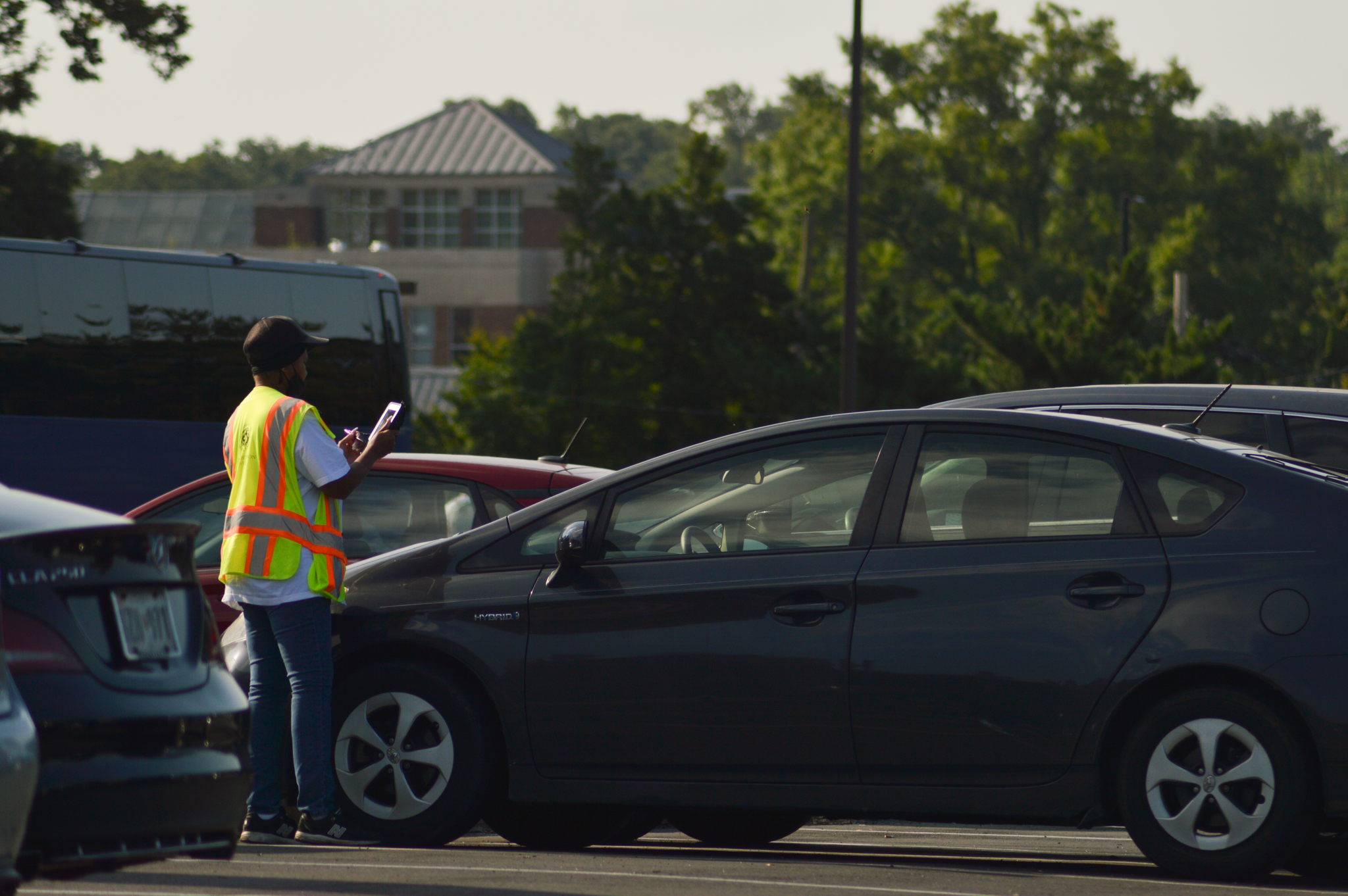The University of Maryland DOTS issued more than 43,200 parking citations in the 2022-23 academic year.
More than half of the citations issued in 2022-23 resulted in an $85 fine, an analysis by The Diamondback found. The citations have stirred frustration among some students at this university due to difficulties in navigating parking lots and the cost of the offenses.
Some students, including junior sociology major Kassandra Kiger, said many of the citations are unnecessary.
“Jumping on every single possible thing they can give and giving a ticket for every single possible thing they can do is not helpful,” Kiger said.
Penalties for parking citations vary depending on the severity of the violation. Citations range from as low as $15, for parking outside control lines, but can be as high as $500 for illegal use of a state-issued disability permit.
About 35 percent of citations are for parking without a required permit, The Diamondback’s analysis found. Those citations result in an $85 fine.
Junior psychology major Brianna Wanuga said she has received three citations for parking without a required permit due to “genuinely, accidental” mistakes.” She added that the $85 citation is too costly for college students.
“$85 for college students, when a lot of them are living paycheck to paycheck or not even working, is insane,” Wanuga said.
[UMD students advocate for more e-scooter charging options]
But some students said that overcrowded and complicated parking lots are the source of several citations.
Maya Flaherty, a sophomore economics and history major, said she has a permit to park in Mowatt Lane Garage, but often struggles to find a parking spot.
This semester, Flaherty said that she could not find a spot in her assigned parking lot, and, in a rush to get to class, parked in a visitor lot— leading to a citation.
“I was driving around the parking garage for 10 or 15 minutes trying to find a space and I was increasingly late for my history class,” Flaherty said.
Like Flaherty, Trevor Norton, a government and politics graduate student, paid for a parking permit in Lot 1 and frequently struggles to find a parking spot.
Norton said that the time needed to search for a spot makes him consider parking in the wrong lot and paying the citation.
University president Darryll Pines said he sympathizes with students’ struggles in finding parking. Pines added that the problem stems from ongoing campus construction.
“You used to be able to go to Lot 1 and have no trouble getting around Lot 1,” Pines told The Diamondback. “But now you have to go in one way, then go around another way to get to the other side and it’s just challenging. It’s challenging for me. Unfortunately, it’s not going to change for the next three years in terms of the construction of the Purple Line.”
[UMD DOTS, students paint crosswalks to raise awareness for pedestrian safety]
If a student receives a parking citation, they can appeal it by following procedures on the Department of Transportation Services website.
Nearly 23 percent of parking citations issued in 2022-23 were appealed and more than 68 percent of the appeals were successful — resulting in a canceled or voided citation, a fine reduction, or a reduction of the citation to a warning.
In a statement to The Diamondback, this university said DOTS strives to have citations reviewed by the peers of the recipient.
Student appeals are reviewed by the student-led Citation Review Unit, while appeals for faculty and staff are reviewed by an appeals specialist.
If a citation recipient feels their appeal would be better explained in person or if the student would like to appeal a second time, they can present their case to the University Appellate Board — a branch of the University Student Judiciary.
In 2022-23, only six out of the 55 appealed decisions to the appellate board resulted in a voided or reduced fine.
Some citations have been voided or reduced due to a student’s struggles with personal circumstances.
“The Board determined that financial hardship should be taken into consideration and leniency be granted in this case,” one appellate board appeal read.
Akshaj Gaur, Victoria Stavish and Hannah Ziegler contributed to this report.



